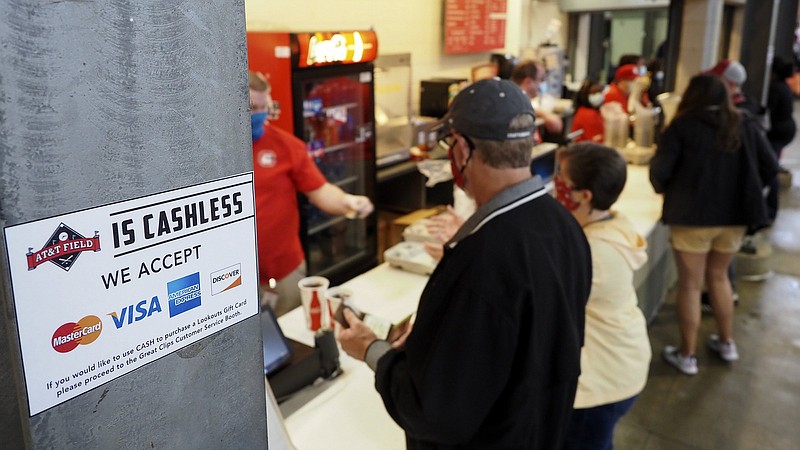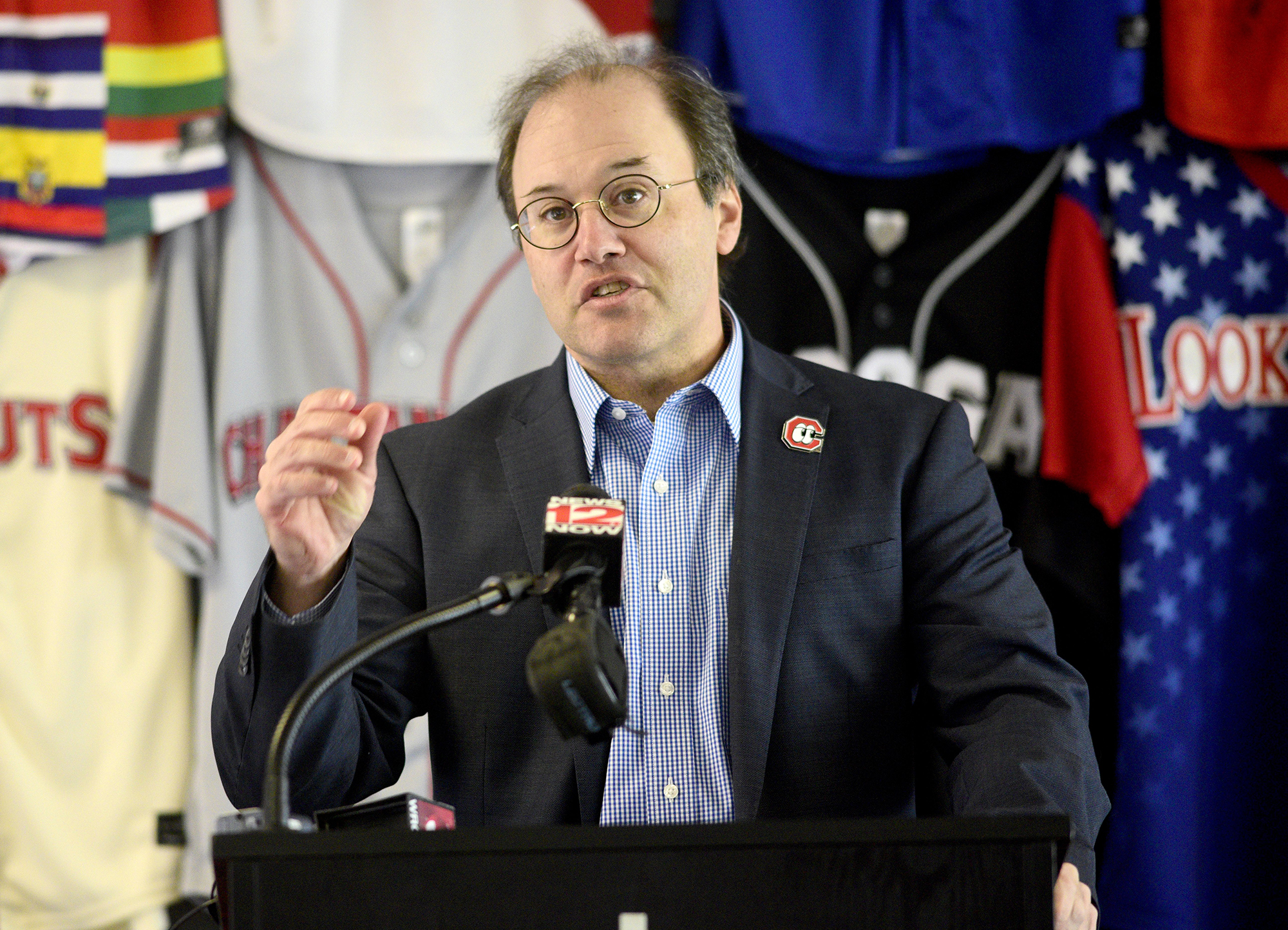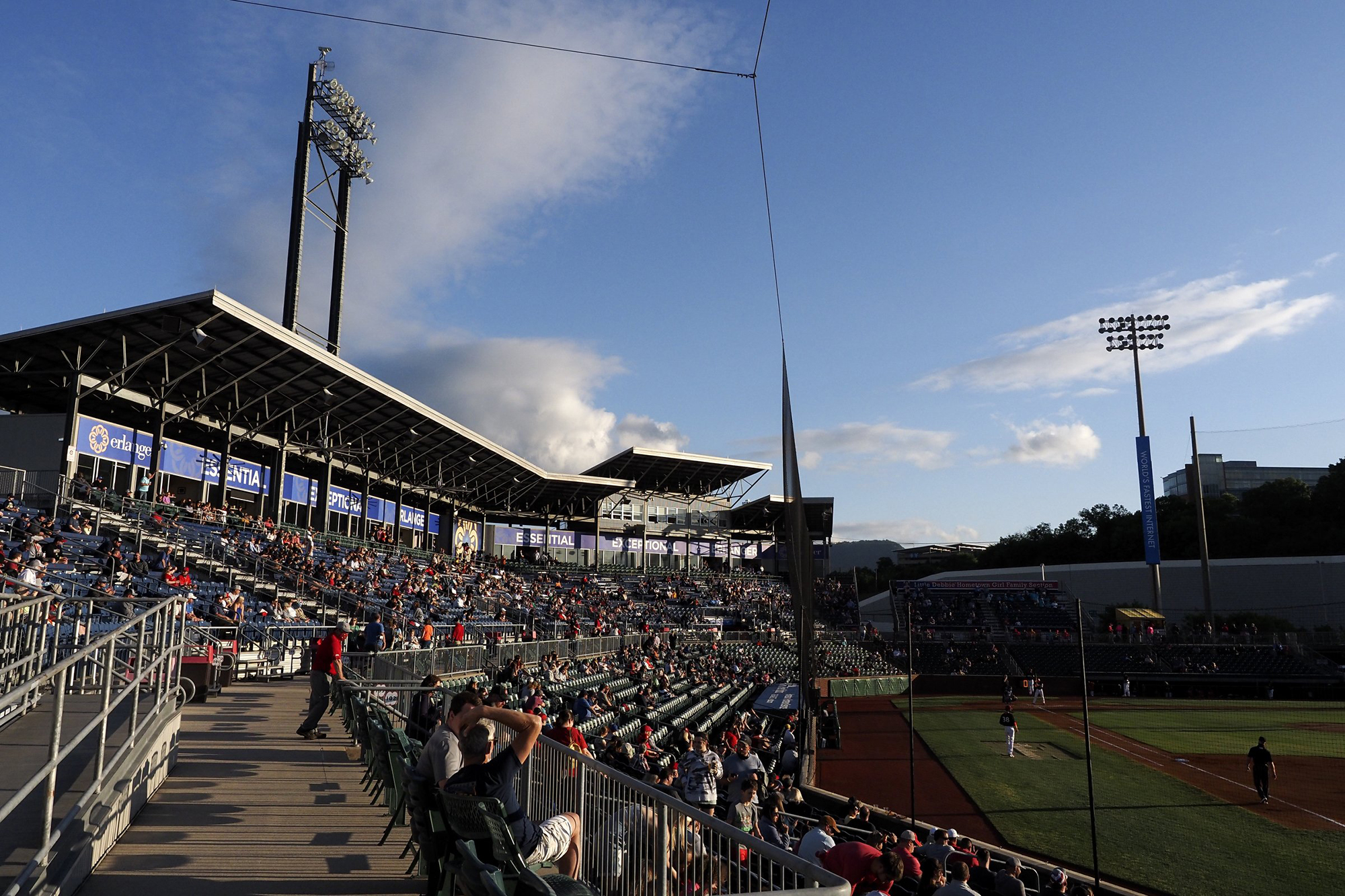WASHINGTON - Laying off 17 people in a Charlotte Checkers front office of 25 employees felt like gutting a roster to Tera Black.
"The front office is a team just as much as the team on the ice," said Black, the chief operating officer of the North Carolina minor league hockey team. "We never want to go through that again."
Similar scenes have played out across the rest of the American Hockey League, along with the ECHL and the Southern Professional Hockey League, as well as all levels of baseball's minor leagues during the COVID-19 pandemic.
Two years in and countless jobs and millions of dollars lost, more than 100 baseball teams and more than a dozen hockey teams hope to finally receive some COVID-19 relief from the U.S. government. In that regard, these minor league teams are standing alongside restaurants, gyms and other industries hit hard by the pandemic after being left out of the first round of federal subsidies for small businesses.
"Everybody who's in our situation really is deserving of and needs some of this relief," said Jason Freier, chairman and CEO of Hardball Capital, which owns and operates the Chattanooga Lookouts, as well as minor league baseball teams in Columbia, South Carolina, and Fort Wayne, Indiana.
"It would help break this sort of vicious cycle we're in," Freier continued, "and allow us to make the investments we need to get back up on our feet."
Unlike major professional sports leagues that could play games in empty stadiums and arenas thanks to TV and streaming revenue, the minors are almost entirely reliant on attendance to stay afloat. A Minor League Baseball survey found the average team lost more than 91% of revenue compared to before the pandemic - a result of the entire 2020 season being canceled - and the AHL reported leaguewide revenue down 85% to 95% from its most recent full season in 2018-19.
Not every team was hit that hard, and those owned by Major League Baseball or National Hockey League affiliates are not eligible for this relief, which could get through Congress as soon as next week as part of budget bills that address the bigger economic picture. In baseball, only a handful of minor league teams are owned by MLB franchises, and 21 of 31 in the AHL are owned by NHL teams.
Those that are independently owned had to show at least a 50% loss in revenue - and a vast majority are well past that mark. Howard Dolgon, president and CEO of the Syracuse (New York) Crunch, estimated about an 80% loss of revenue and a 50% depletion of staff for his AHL club.
"We've lost millions of dollars in this process," Dolgon said. "This is beyond anything anybody could have prepared for. ... I don't think anybody could have realistically anticipated how devastating this turned out to be."
Charlotte and Syracuse were joined by the AHL's Lehigh Valley Phantoms, Milwaukee Admirals and Springfield Thunderbirds in seeking COVID-19 relief. They teamed up with five members each from the ECHL and SPHL and a coalition of teams from baseball's minor leagues to hire law firm Akin Gump for help in advancing legislation that could help members of smaller independent leagues, too.
After cautious optimism earlier in the year, AHL president and CEO Scott Howson now said, "We're trying to get it to the finish line." The relief could mean about $500 million spread across the minor league teams involved.
"It's certainly necessary," Howson said. "It's needed."
Experts have mixed feelings about additional government subsidies this far into the pandemic, but there's no argument about how deep a hole minor league sports need to dig out of given the financial ramifications of playing in front of limited or no fans.
"They lost their shirts during the pandemic because they don't have any revenue from media stuff," said Andrew Zimbalist, an economics professor at Smith College in Northampton, Massachusetts. "The minor league owners have an argument. They are small businesses. They employ a lot of people in the community."
Minor league executives said costs are roughly 15% to 20% higher now than before the pandemic because of inflation. Rodney Paul, a professor of sports analytics at Syracuse University, wonders if there's an opportunity caused by inflation for minor leagues to start thriving again as a more affordable alternative.
"In a situation like we are in with high inflation and people might not have money to be able to do lots of things, minor league sports could offer a very nice way for an enjoyable evening, an enjoyable afternoon for people, for families, friends at a pretty low cost," Paul said.
Not if the experience is subpar, though.
Freier said staffing and other budget cuts have made it harder to put on a good show for fans paying to attend, adding that COVID-19 money could go toward everything from hiring more people to paying off debts and fixing up stadiums and arenas.
"The unfortunate thing is when you try to run a venue with fewer people, fans have a less good experience," he said. "You have fewer concession stands open and longer lines, and that leads to people not having as good an experience and you get into this negative cycle. But until you're in a cash position where you can afford to make all of those investments that you need, it's a tough thing, and that's why we're looking for this relief."


